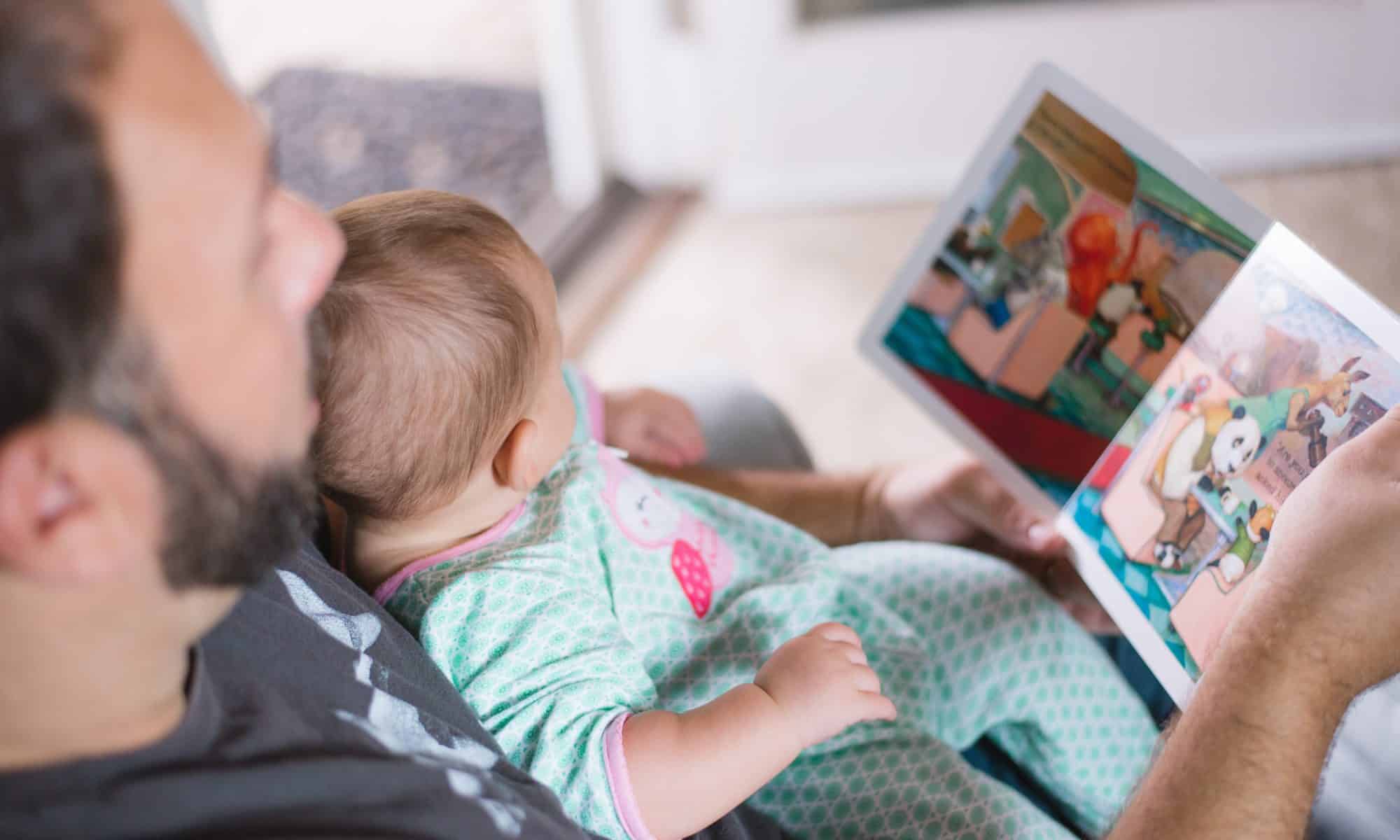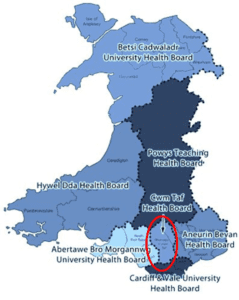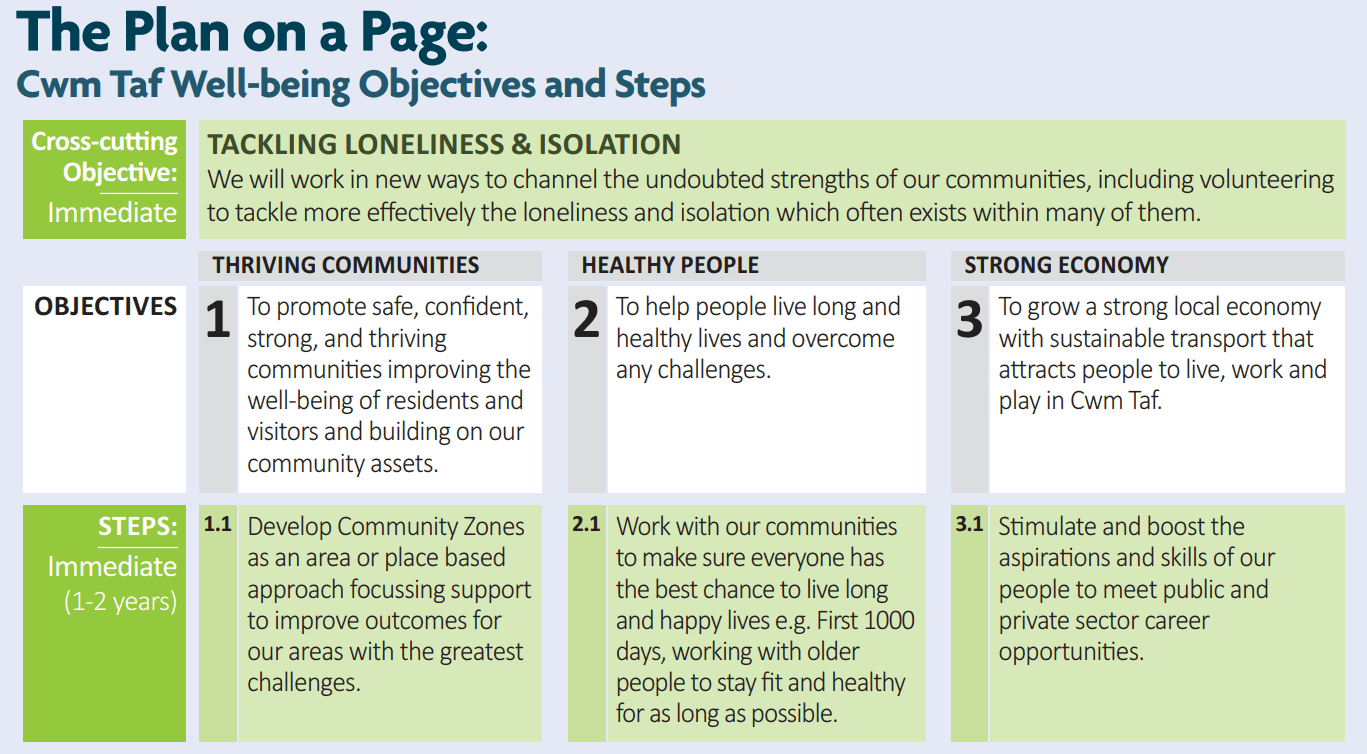In a Welsh community formerly driven by heavy industry, the citizens of Cwm Taf continue to experience high levels of deprivation and poor health outcomes. This is a story repeated in many post-industrial regions of Europe. But in Cwm Taf, work is underway to map, connect, and improve services so the most vulnerable new families can get the best possible start.
The whole public sector is working together: health, police, education, social, probation, and fire and rescue services are collaborating along with the national government and the natural resource agency. By mapping the situation together, they will be able to understand the situation, what is needed to create change, and agree on priority actions.
By Angela Jones
Cwm Taf and the wellbeing plan
Cwm Taf, or ‘Taf Valleys’ English, is in the heart of the South Wales valleys in the UK. It has a population of approximately 300,000 people. Formerly a thriving coal mining community, the decline the industry contributed to it becoming the most deprived Health Board area in Wales.
In 2015 in Wales, the Well-being of Future Generations Act was introduced. The act requires public bodies in Wales to think about the long-term impact of their decisions, to work better with people, communities and each other, and to prevent persistent problems such as poverty, health inequalities and climate change. This is a groundbreaking law that provides a unique opportunity for all public services to work differently together, involving communities in shaping our long-term future and improve well-being for all.
In line with the act, the Cwm Taf Well-being Plan (pdf) was published on 5th May 2018. The five-year Well-being Plan contains three main Objectives, with the immediate priorities shown below:
The exciting part about this plan is the opportunity to improve outcomes for the First 1000 Days of Life, working together across the public sector and with our communities. This includes police service, health service, local authorities including education and social services, probation service, the third sector, fire and rescue service, Natural Resources Wales and the Welsh Government.
Action Plan: mapping services and working together
To start this work, we held a local Systems Engagement Event on 26th June 2018, with more than 60 representatives from all services. The current data and issues were shared and existing services for health, learning, childcare and play, and parenting were mapped out. The mapping exercise also looked at different stages: pre-birth, 1-2, 3-5 and 5-7 years. The services were categorised as informal or universally available, formal support and specialist support as shown below:
This was an interesting experience and it was clear that no-one professional had an overview of all the services available. It also showed how complex the system can be for the people trying to use it. Following the event a detailed action plan was drawn up to identify specific issues/needs, desired outcomes, and actions to achieve improvements in the First 1,000 days.
The first 1000 days definition was agreed as preconception to age 2, in order to have maximum impact. However, the Welsh Government was keen to work with Cwm Taf to review the early years’ provision and support and therefore the action plan was extended to includes children up to the age of 7 years.
The event helped to clarify the current situation, what outcomes are needed, and areas for action.
Information shared at the event showed that there was a:
- High number of Children Looked After (by the local authority) (CLA), particularly those aged 0-2 years
- High number of vulnerable people of child bearing age, who are pregnant or parents of young children
- Need to break the cycle of vulnerability perpetuated through exposure of children to Adverse Childhood Experiences (ACEs)
- Need to improve school readiness of children from vulnerable backgrounds
- Need to target resources more effectively
The systems engagement event also helped to identify what was needed
- Effective sharing of information across organisations on risk factors for vulnerability
- Reducing the number of Children Looked After by reducing unplanned pregnancies in high risk/vulnerable women
- Reducing/mitigating exposure to Adverse Childhood Experiences
- Improving school readiness of children from vulnerable families
Following this, the priority actions were approved by the Public Services Board, as follows:
- Agree a data sharing protocol and implement to identify risk factors for vulnerability to target action for prevention/early intervention
- To target more effectively vulnerable women to prevent unplanned pregnancies through Long Acting Reversible Contraception (LARC)
- Reviewing sex and relationships education (SRE) and personal/social education (PSE) in secondary school. To focus on the importance health and well-being prior to conception for males and females.
- Targeting effective support to vulnerable women and their partners during pregnancy
- Targeting effective supporting during early parenthood; women, partners and their infants
Our progress so far
Governance
As I lead on for delivery of this work stream, I ensure the work integrated with other partnership working for children and young people and that it is properly reported through the Public Services Board.
Agree a data sharing protocol and implement to identify risk factors for vulnerability to target action for prevention/early intervention
The ability to profile vulnerability in the population allows for support to be put in place at the earliest opportunity. This can help prevent problems before they arise or allow for early interventions, giving maximum impact in a timely way. The Public Service Board has agreed to progress Vulnerability Profiling from preconception to age 7 years. The Health Board and one Local Authority are jointly piloting the first stage of this to assess the practicality and information governance aspects of Vulnerability Profiling. It is anticipated that an Information Sharing Protocol will be developed as part of this pilot. The Welsh Government have provided funding for a dedicated ifficer to take this forward and the appointment commenced in March 2019.
In addition, an evidence review is underway to identify key data that will both identify vulnerability and demonstrate effective interventions to prevent or mitigate the risks. This review will inform a commissioning guide for local services. A Steering Group has been established to include other partners in the development of this profiling work. We hope that the shared information database will allow individuals and families to be coded as red, amber or green as to the amount of support that they will be offered, with red being the maximum and green needing no additional support. This is a potential “game changer” for the work we do.
To target more effectively vulnerable women to prevent unplanned pregnancies through long acting reversible contraception (LARC)
The Cwm Taf Sexual Health Advisory Board (SHAB), a multi-agency forum, has agreed to lead this piece of work. Work has been commissioned to engage with women in high risk groups and get their views on accessing contraception, through co-produced methods. Client groups include those engaged with the Reflect Project i.e. those that have had babies or children taken into care, as well as Domestic Abuse, Mental Health and Substance Misuse services. This will report by June 2019. Further work is being undertaken by SHAB to engage with some of our Young Parent groups, Youth settings, Learning Disability Groups, Care Leavers & Asylum seekers/Refugees if possible.
There will also be some data analysis on the risk factors for women who have their babies taken into care at birth, up to 2- and up to 7-years-old, along with the associated costs from the three Local Authorities.
This is an exciting time locally, with a great deal of will from partners to make this happen so that we can work to prevent or mitigate vulnerability and ensure children and families achieve their full potential.
Find out more
EuroHealthNet has a support desk to help regions suffering from deprivation to access European funds for health promotion and prevention. Contact us if you would like to find out more.
In June 2016, EuroHealthNet organised a country exchange on the Sustainable Development approaches to health and health equity Well-being of Future Generations Act. Contact us for further information
Further information about the Cwm Taf University health board, visit cwmtaf.wales.

Angela Jones
Angela is a Consultant in Public Health, based in Cwm Taf Morgannwg Local Public Health Team for six years. She has an Honours degree in Environmental Health, a Masters degree in Public Health and an Executive Masters degree in Business Administration. Following a successful career in local government as Director of Public Protection, she joined the NHS in 2005.
Angela leads the delivery of the Healthy People objective of the Well-being Plan on behalf of the Public Services Board in Cwm Taf, building on her role in partnership working advocating for improvements in public health.



